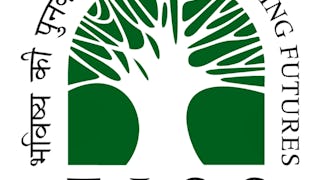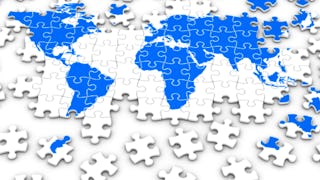This course explores democracy as a form of governance and its impact on development and public policy. Learners will examine the significance of democratic institutions in shaping development agendas and outcomes. Through comparative analysis, the course investigates how democracies and non-democracies differ in their approach to public policy, resource allocation, and citizen engagement. Key questions addressed include whether democracy promotes development, how policy outcomes vary across regimes, and whether democracies should be evaluated based on results. By the end of the course, learners will gain a nuanced understanding of the complex relationship between democratic governance and development effectiveness in diverse contexts.



Law, Governance, and Public Policy

Instructor: Sudarshan Ramaswamy
Access provided by Model Institute of Engineering and Technology
1,796 already enrolled
Recommended experience
What you'll learn
Dive into democracy, governance, and development, focusing on representative democracy. Analyze its function, strengths, and limitations.
Skills you'll gain
Details to know

Add to your LinkedIn profile
23 assignments
June 2025
See how employees at top companies are mastering in-demand skills

There are 7 modules in this course
In this module, you will examine democracy as one form of governance. It discusses the significance of democracy for development policies. It explores public policy outcomes in democracies vis-à-vis nondemocratic systems of governance. You will find answers to questions, such as: Is democracy good for development? Does democracy have different public policy outcomes than nondemocracy? Should we judge democracy as an institution with results? If yes, what are those outcomes?
What's included
8 videos2 readings3 assignments
This module introduces you to different kinds of governance and governance reforms. It discusses how to assess the quality of governance. You will learn about different theoretical conceptions of governance and theoretical approaches to study governance, including rational choice and collective choice, new institutionalism, policy networks, and policy instruments.
What's included
6 videos2 readings4 assignments
This module focuses on state capacity and the state’s role in economic development. It examines various state forms, including the developmental state, predatory, regulatory, and corporatist state. Finally, you will examine the relationship between forms of state and types of democracy to understand democracy as a political practice for enhancing development.
What's included
7 videos2 readings4 assignments
In this module, you will learn about the importance of law for public policy following the discussion on state and governance. It begins with explaining why policies must conform to constitutional provisions and need the backing of law for enforcement. Further, it explains the rationale for separating powers between the executive, the legislature, and the judiciary. Finally, it elaborates on the centrality of the Rule of Law in constitutional democracies.
What's included
6 videos2 readings3 assignments
This module discusses the liberal utilitarian idea of justice. You will analyze alternative nonutilitarian ideas of justice proposed by John Rawls and Michael Sandel, followed by Amartya Sen’s attempt to revive a utilitarian conception of justice. It further discusses the legal systems in constitutional democracies based on justice. Finally, it examines how judicial review empowers the superior courts to interpret laws to do complete justice.
What's included
6 videos1 reading3 assignments
In this module, you will learn about the issues and problems that the state takes up and addresses through policy, the role that law plays in enforcing policies, and how law serves as an instrument of political power. The module explains the policy cycle by first identifying a problem or issue and then evaluating the policy chosen to address it, leading to policy modification. You will also examine how power plays a role in bringing some items into the policy agenda, keeping other things out, and persuading people to think about adversity as a virtue.
What's included
6 videos2 readings3 assignments
This module deals with the global impacts on national and local governance. You will learn how norms and provisions in international treaties shape national policies and laws. You will analyze why it is no longer possible for sovereign states to make policies independently of requirements of international institutions such as the World Bank, International Monetary Fund, the World Trade Organization and commitments given to the United Nations to realize the Sustainable Development Goals. You will also learn why national policies must focus on the imperatives of globalization.
What's included
5 videos3 readings3 assignments
Build toward a degree
This course is part of the following degree program(s) offered by O.P. Jindal Global University. If you are admitted and enroll, your completed coursework may count toward your degree learning and your progress can transfer with you.¹
Instructor

Offered by
Why people choose Coursera for their career




Explore more from Social Sciences

O.P. Jindal Global University

O.P. Jindal Global University

Tata Institute of Social Sciences

Universiteit Leiden

